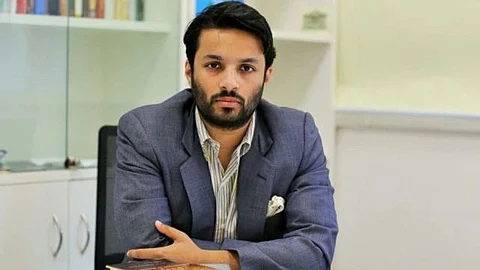
- News
- Campus
- Exam
- Podcast
- Web Stories
- Do You Know
- Path Finders - UG Programs
- Videos
- Book Review

More than 1,000 individuals, including some of India’s most prominent academics, have signed an open letter in support of Professor Ali Khan Mahmudabad of Ashoka University, who was arrested on Sunday, May 18, for social media posts related to India’s recent military strikes on May 7.
The arrest was made under sections of the Bharatiya Nyaya Sanhita (BNS), with the charges including inciting secession and insulting religious beliefs. The First Information Report (FIR) was based on a complaint by a Bharatiya Janata Party (BJP) Yuva Morcha leader in Haryana, as per a report by Scroll.in.
In response, a statement of solidarity has emerged from India’s academic community, denouncing the arrest as a case of “targeted harassment and attempted censorship.”
The letter notes, “It is preposterous that we have come to such a pass in India that even praising the army, albeit while criticising those who clamour for war, can now invite such targeted harassment and attempted censorship.”
Signatories include well-known historians Romila Thapar and Ramachandra Guha, economists Jayati Ghosh, and academics such as Nivedita Menon and Ram Puniyani.
The letter points out that Khan, in his Facebook posts, had praised the Indian Armed Forces for their strategic restraint. It explains that his reflections critically explored how distinctions between terrorist groups and the Pakistani military have blurred and described the visible inclusion of women officers in official communications as a hopeful symbol of the Republic’s secular vision.
“Far from being misogynist or anti-national,” the letter states, “Prof Khan’s posts are driven by a clear moral vision of what being a good citizen means and are actually the words of a true patriot who is concerned with the lives of both soldiers and citizens.”
It adds that the Women’s Commission’s accusations, which included vilification of the armed forces, inciting communal distress, and disparaging women in uniform, were based on deliberate misinterpretation of his words.
The signatories also flagged how the media misquoted and distorted his views, contributing to a hostile and misleading narrative.
Khan, who is an Associate Professor and Head of the Department of Political Science at Ashoka University, is described in the letter as someone whose public scholarship has consistently been rooted in dialogue, understanding, and peace.
“He even applauded the Indian right wing for their support for Colonel Sofia Qureshi and invited them to also equally loudly oppose mob lynching and the bulldozing that Indian Muslims and others are frequently subjected to,” the letter points out.
It also references his use of texts like the Bhagavad Gita and examples from Islam in a recent post titled “The blind bloodlust for war!” to reflect on the moral dilemmas of war, ego, and pride.
Criticising the Haryana State Women’s Commission’s actions, the letter argues that the body lacks legal jurisdiction to summon Khan over such posts.
It contrasts this with the commission’s inaction on recent cases where rape threats were made against the Foreign Secretary’s daughter and misogynistic comments were directed at Colonel Sofia Qureshi by a minister.
“Through its actions, the Commission has shown how constitutionally protected freedom of speech continues to be under threat from forces that seek to spread hatred and destabilize India,” the statement reads.
The signatories demand a full and public apology from the Haryana Commission and urge Ashoka University to “stand by its faculty member especially during this time when he has done nothing except carry out his duties as a teacher, a citizen and a person who believes in harmony and peace.”
